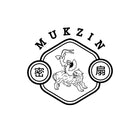Social Responsibility
At MUKZIN, we are guided by our values of passion, creativity, and teamwork. We pride ourselves on our inclusive culture and team spirit and we believe in operating in a fair and sustainable manner. It is important for us to run our business in a way that benefits all of our stakeholders and we seek to engage with them on a regular basis.
MUKZIN current Ethical Trade Policy is based on the Ethical Trade Initiative (ETI) base code. The ETI is an alliance of retailers, manufacturers, NGOs, and trade union organizations.
MUKZIN’S Code of Conduct advises suppliers that:
1.Employment is freely chosen
1.1 There is no forced, bonded or involuntary prison labor.
1.2 Workers are not required to lodge "deposits" or their identity papers with their employer and are free to leave their employer after reasonable notice.
2.Freedom of association and the right to collective bargaining are respected
2.1 Workers, without distinction, have the right to join or form trade unions of their own choosing and to bargain collectively.
2.2 The employer adopts an open attitude towards the activities of trade unions and their organizational activities.
2.3 Workers representatives are not discriminated against and have access to carry out their representative functions in the workplace.
2.4 Where the right to freedom of association and collective bargaining is restricted under law, the employer facilitates, and does not hinder, the development of parallel means for independent and free association and bargaining.
3. Working conditions are safe and hygienic
3.1 MUKZIN provide a safe and hygienic working environment shall be provided, bearing in mind the prevailing knowledge of the industry and of any specific hazards. Adequate steps take to prevent accidents and injury to health arising out of, associated with, or occurring in the course of work, by minimizing, so far as is reasonably practicable, the causes of hazards inherent in the working environment.
3.2 Workers receive regular and recorded health and safety training, and such training will be repeated for new or reassigned workers.
3.3 We provide clean toilet facilities and to potable water, and, if appropriate, sanitary facilities for food storage shall be provided.
3.4 We provide accommodation, where provided clean, safe, and meet the basic needs of the workers.
3.5 The company observing the code shall assign responsibility for health and safety to a senior management representative.
4.Child labour not be used
4.1 No recruitment of child labour.
5.Living wages are paid
5.1 Wages and benefits paid for a standard working week meet, at a minimum, national legal standards or industry benchmark standards, whichever is higher. In any event, wages should always be enough to meet basic needs and to provide some discretionary income.
5.2 All workers shall be provided with written and understandable Information about their employment conditions in respect to wages before they enter employment and about the particulars of their wages for the pay period concerned each time that they are paid.
5.3 Deductions from wages as a disciplinary measure shall not be permitted nor shall any deductions from wages not provided for by national law be permitted without the expressed permission of the worker concerned. All disciplinary measures should be recorded.
6.Working hours are not excessive
6.1 Working hours comply with national laws, collective agreements, and the provisions of 6.2 to 6.6 below, whichever affords the greater protection for workers. Sub-clauses 6.2 to 6.6 are based on international labour standards.
6.2 Working hours, excluding overtime, shall be defined by contract, and shall not exceed 48 hours per week.
6.3 All overtime shall be voluntary. Overtime shall be used responsibly, taking into account all the following: the extent, frequency and hours worked by individual workers and the workforce as a whole. It shall not be used to replace regular employment. Overtime always be compensated at a premium rate, which is 130% of the regular rate of pay.
6.4 The total hours worked in any seven day period not exceed 60 hours
6.5 appropriate safeguards are taken to protect the workers’ health and safety. The employer can demonstrate that exceptional circumstances apply such as unexpected production peaks, accidents or emergencies.
6.6 Workers will be provided with at least one day off in every seven day period International standards recommend the progressive reduction of normal hours of work, when appropriate, to 40 hours per week, without any reduction in workers’ wages as hours are reduced.
7.No discrimination is practised
7.1 There is no discrimination in hiring, compensation, access to training, promotion, termination or retirement based on race, caste, national origin, religion, age, disability, gender, marital status, sexual orientation, union membership or political affiliation.
8.Regular employment is provided
8.1 To every extent possible work performed must be on the basis of recognised employment relationship established through national law and practice.
8.2 Obligations to employees under labour or social security laws and regulations arising from the regular employment relationship shall not be avoided through the use of labour-only contracting, sub-contracting, or home-working arrangements, or through apprenticeship schemes where there is no real intent to impart skills or provide regular employment, nor shall any such obligations be avoided through the excessive use of fixed-term contracts of employment.
9.No harsh or inhumane treatment is allowed
9.1 Physical abuse or discipline, the threat of physical abuse, sexual or other harassment and verbal abuse or other forms of intimidation shall be prohibited.




